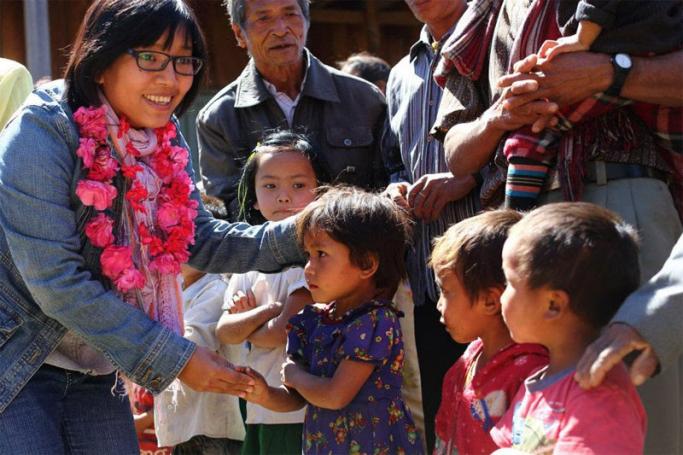In the past two weeks, I spoke to about two dozen female candidates who are contesting Myanmar’s upcoming Nov. 8 elections, both over the phone and face-to-face. I was intrigued to find out about the challenges they face.
The majority of them told me their biggest fear is attacks on their integrity and intrusion into their personal lives due to the fact that they are women. Some shared stories of how they had already been on the receiving end of insults and slurs even before they started campaigning.
Their personal relationships were put under the spotlight, and many women running for parliament found the scrutiny of their private lives outweighed any interest in their policies.
Readers might be surprised about the extent of the abuse and harassment they suffer. I’m not. I often face the same type of criticism.
You see, I am a journalist in a male-dominated environment and happen to have more male than female friends. Supposedly this means I’m a cheap woman. It’s like I’ve committed a crime. I’ve endured - and still do - such malicious gossip countless times.
In Myanmar, this is the common thread between both ordinary and high-profile women - they are often judged by whether they fit the traditional idea of what a woman should be, and not by their actions or abilities.
Aung San Suu Kyi may be the daughter of General Aung San, Myanmar’s founding father, but even she can’t escape such judgment. Despite her achievements, she’s been criticised for marrying a foreign man and thereby besmirching the Burmese race.
Well-known activist Tuan Cer Sung, better known as Cheery Zahau, recounts how living alone seems to invite slurs, especially when male acquaintances visit. She’s also been accused of getting pregnant out of wedlock and having an abortion.
AGE-OLD TROPES FIND FERTILE GROUND IN MYANMAR
My country has undergone significant changes in the past few years but the conservative attitudes towards women - among both men and women - seem to have remained the same.
In our patriarchal society it’s still common to see boys being favoured over girls when it comes to education. For most “Lu Gyis” (adults or elders), it’s a case of why waste money on girls when all they are going to do is get married and have children. Then it’s the responsibility of her husband to take care of her. And it’s the girls who have to do household chores when they grow up.
Women cannot move around freely - they are watched closely, not just by family members but also by the wider community.
Have you lost weight and are seeing a doctor often? The local gossips may spread a rumour that you have had an abortion.
Do you go out at night wearing short outfits? You must be a prostitute, the neighbours whisper.
And a woman shouldn’t think she can escape criticism once she has married and settled down. If you have no sons, then you are obviously a lesser woman. If you decide to stay single, there’ll be talk that it’s because nobody wants to be with you.
Judge women on their abilities and actions - don’t stoop to personal attacks.
Criticise all you want if the female parliamentary candidates are not qualified, if their policies are flawed, or if you disagree with their stance on a particular issue.
But if all you are doing is taking malicious pot-shots at their personal affairs because they happen to be women, then it’s you who has questionable morals. Stop worrying if candidates are women or men. Vote for the one who can best serve you.
http://www.myanmar-now.org/news/i/?id=2e5bec38-d83e-4fea-b670-889d3194e997
Abuse of female candidates part of deeper prejudice
02 October 2015
Abuse of female candidates part of deeper prejudice












